[ad_1]
By Jasmine Johnson
Special to the AFRO
Excitement and anticipation filled the ballroom at Morgan State University as over 300 students from across the city attended the Feb. 7 Healing Baltimore Conference. Healing City Baltimore and Morgan State University jointly hosted the event as part of a weekend of activities focused on reducing trauma.
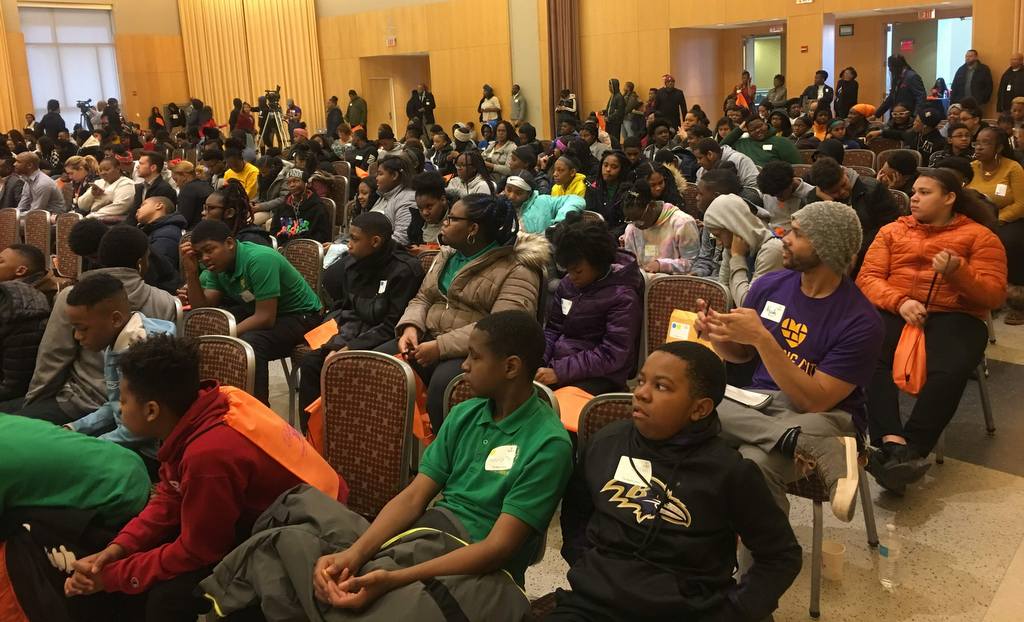
“It really was an opportunity to have the community come together and begin what we consider a movement,” said Michael Sinclair, associate professor/ chair of Urban Youth and Families Specialization in the School of Social Work. “The movement is to really address some of the violence and trauma that Baltimore has experienced over the last couple of years.”
Healing City Baltimore is a coalition that has been engaging communities across the city about the need to heal from racial, social and economic issues that many face, especially young people. The Morgan event was part of a citywide partnership with input from youth groups, community groups and Coppin State University.
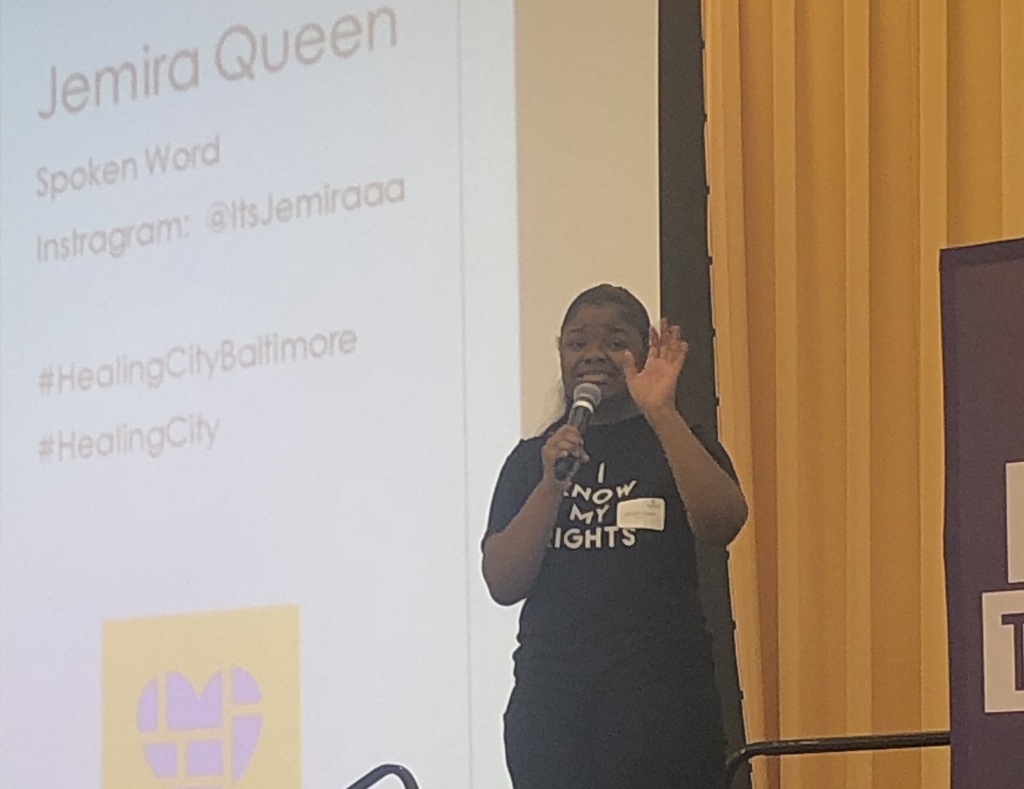
“It’s incredible to be here at Morgan State University with hundreds of young people across our city,” said Zeke Cohen, Baltimore City Councilman. “I know as a former teacher that children in Baltimore are amazing; that what’s portrayed every night on the news is not the whole story and not even accurate for most of our young people.”
Cohen introduced the Baltimore City Trauma-Responsive Care Act back in July, 2019, and it passed earlier this year. The act was named for the late Rep. Elijah Cummings after the congressman’s death last October. Cohen said his goal is to help transform Baltimore into a “trauma-responsive city” that prevents violence by treating its root causes. Some Baltimore youth pushed hard for the legislation.
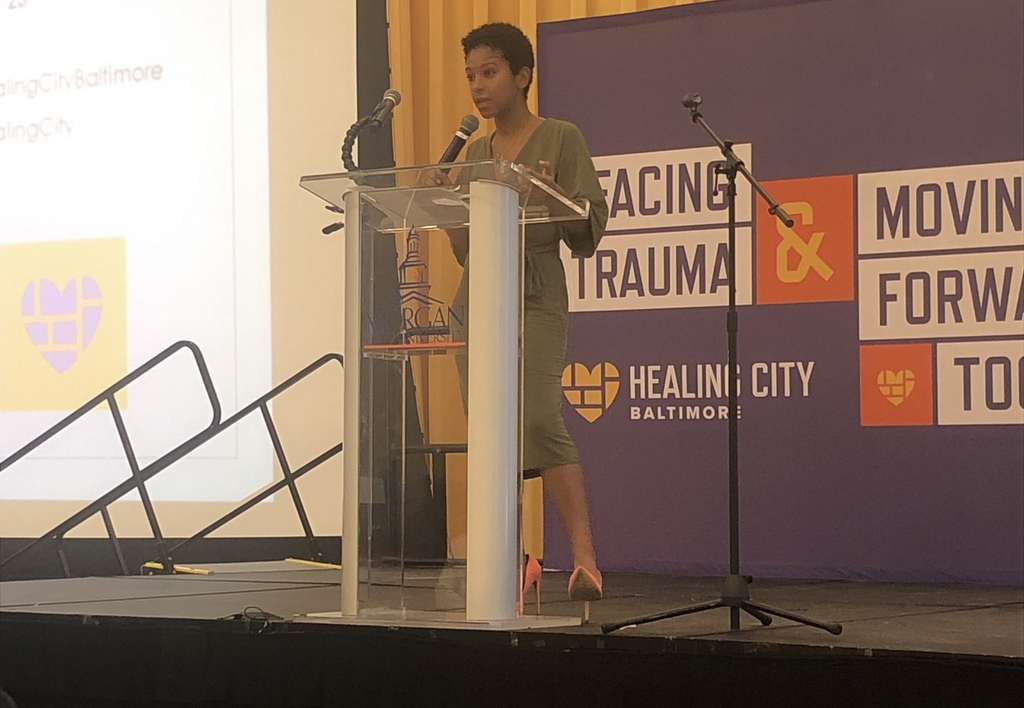
“To actually have something in store like a program for people is important,” said youth organizer BrianHa McMillion. Often times when children act out in school, it’s because they have personal issues that they’re dealing with at home. So we cannot leave them without any help at all.”
Students, parents, teachers, volunteers, and vendors interacted during the conference which included panel discussions, experts, and youth speakers who shared ideas about how to reduce trauma.
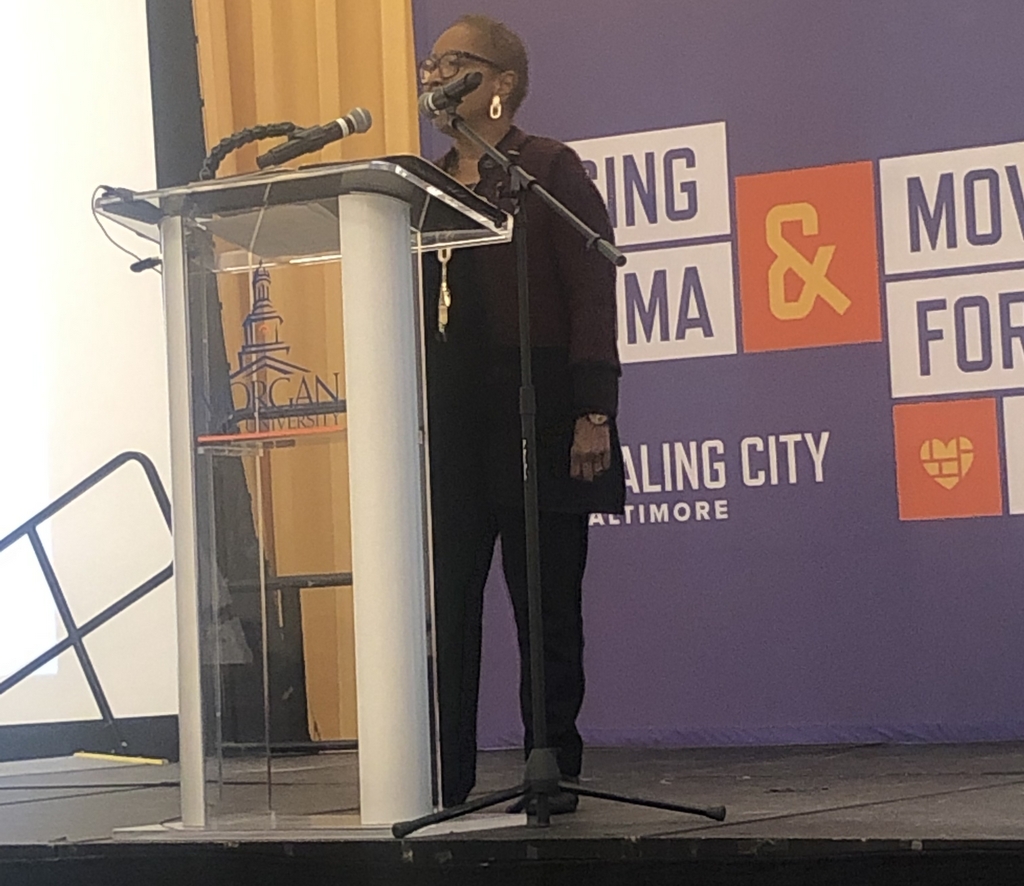
“They have been working on this as a way to bring the city and the community together to come out with some type of strategic effort that makes sense,” said Anna McPhatter, dean of the School of Social Work at Morgan.
Zoe Bramble is a young Baltimorean who has been active in the movement. She encouraged young Baltimoreans to stay hopeful no matter what they are going through. “You take responsibility for what you can manage and what you can grow from and do your best to fight through it,” Bramble said.
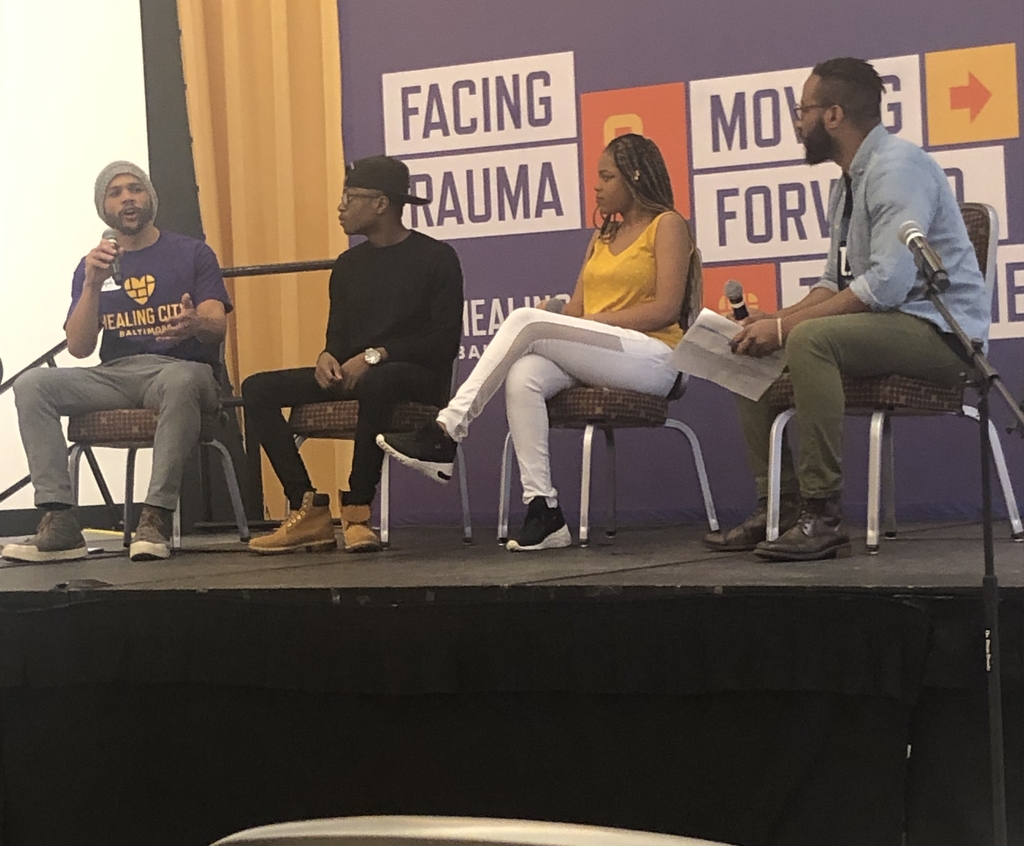
The Morgan event was part of a three-day summit included a workshops and a march from Coppin in West Baltimore February 9 that ended at Fredrick Douglass High School where Baltimore Mayor Bernard C. “Jack” Young signed the Elijah Cummings Healing City Act. The bill was signed at Douglass because one year ago a staff member was shot inside the building. Some Douglass High School students helped to write the bill because they dealt with trauma after the shooting and did not feel safe.
According to Cohen, over half of children in Baltimore have experienced one or more major traumas. Cohen said trauma intervention can help solve some of our city’s problems.
Specifically, the newly signed legislation creates a trauma-informed care task force and requires certain city agencies to have some employees trained in trauma-informed care.
[ad_2]
Source link
